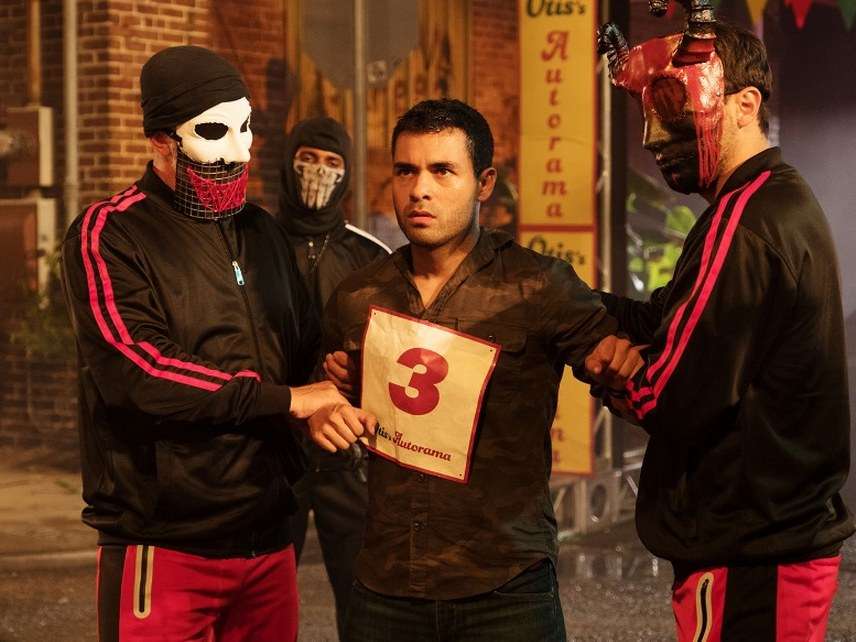The Nihilistic World of The Purge Brings Its Mayhem to the Small Screen
Don't expect 10 hours of serial television to add more nuance.

The Purge. USA. Tuesday, September 4, 10 p.m.
The Purge movies—there have been, God help us, four of them in five years—are all based on the premise that America has fallen under control of a bizarrely authoritarian government that, once a year, allows (encourages might be a better word) everybody in the country to go out and kill, rape, rob, and loot anything or anybody they want. I have given this idea some thought, and if it should ever be adapted in real life, I have identified the first person I would disembowel. That would be Variety film critic Owen Gleiberman, who earlier this summer in his review of Purge No. 4 (The First Purge), labeled the whole series of films "Clockwork Orange-meets-Roger Corman grade-Z nihilism," a phrase that I swear to God I would have thought of first if I hadn't had to wait for the TV show to start.
The TV version (written and produced by James DeMonaco, the auteur all four Purge films) finally arrives next week, and I'm afraid I don't have much to add to Gleiberman's pungent wisdom. There's a little less Clockwork Orange than some of the movies—even liberated cable TV still can't match up with the body count of a dedicated grindhouse director—and a little more nihilism ("On Purge Night, America lives up to its promise!" exhorts one nut-job talk radio host).
There's even a slight nod to character development, which The Purge is going to need in a format that stretches 10 hours over nearly three months instead of 90 frenzied minutes of shopping-mall mayhem.
So, into your standard Purge template—the 1-percenter plutocrats sip craft cocktails and watch on big-screen televisions as, outside their walled compounds, the proles and the ethnics hack one another's brains out because, well, that's what they do—there have been injected a cluster of subplots.
Miguel (Gabriel Chavarria, East Los High) is a Marine who's returned from the generic Over There, only to discover that his sister Penelope (Jessica Garza, Six) has joined a cult whose members are sort of like food stamps for Purge Night—they give themselves up to the poor and disadvantaged who otherwise might not get to do their fair share of slaughter. (And people wonder why altruism had a bad name with Nietzsche.)
Jane (Amanda Warren, NCIS: New Orleans) is a corporate executive working to seal a big stock deal on Purge Night and also to make sure a hired killer knocks off her annoying boss, which happily will just be chalked up to the night's general messiness. Only problem: Working around the all the chaos created by other people in the unit who plan to kill their bosses and rivals, the greedy bastards.
And, most poignantly, Jenna (Hannah Emily Anderson, Shoot The Messenger) and Rick (Colin Woodell, The Originals) are an ambitious young couple at a corporate party seeking seed money for a business proposal, but horrified to discover the boss's daughter is somebody they accidentally boinked in a three-way, which is, you know, just yucky.
So: lots of agonizing self-examination and moral contemplation going on against the usual backdrop of horse-whippings, pyromania, axe-play, senicide, and other activities generally detrimental to civil society. And yet, surprisingly, The Purge remains essentially a snuff film. Call me crazy, but it just may turn out that 10 hours of gory slaughter unconstrained by even the vaguest intellectual or moral framework is going to be irredeemable crap no matter how many pretty sociopolitical ribbons you put on it. Call it, I dunno, grade-Z nihilism.


Show Comments (48)